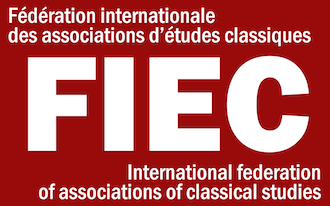The German Association of
Archaeologists (Deutscher Archäologen-Verband) has launched a petition against
the abolition of the chair of Classical Archaeology at Saarland University.
Please have a look at the beginning of the petition, which addresses the
government of the German state Saarland as well as the president of its university:
“Under severe financial pressure by
Saarland's state government, Saarland University (Universität des Saarlandes,
UdS) is forced to reduce its expenses by almost 20 per cent by the year 2020.
In order to meet this requirement, the University Board announced its plans,
inter alia, to abolish Classical and Antiquity Studies (Altertumswissenschaften)
as an independent department. While the Chairs of Classics (Philology)
and Ancient History, both currently appointed and secure for the coming years,
will be preserved (for the moment at least) under the auspices of the
Historical Institute, the currently vacant Chairs of Classical Archaeology as
well as Prehistory shall be given up completely.”
For more information and to sign the
petition, please visit the following website (see below for instructions on how
to sign the petition in German):
How to sign the petition in German:
By clicking on the link you will be
directed to the petition on change.org. On the right-hand side you will see the
headline “Petition unterschreiben” (sign petition). Beneath this headline you
are asked to enter your first name (“Vorname”), your last name (“Nachname”),
your country (change “Deutschland” (Germany) to your home country)), and you
postcode/zip code (“Postleitzahl”).
To complete the process click on
“Unterschreiben” (sign).
Below the “Unterschreiben”-button
there are two boxes you may tick if you would like to be kept up to date by the
petitioner (box 1), or if you want your signature to be visible to everyone on
change.org (box 2).
Help by drafting an individual
letter:
If you would like to do more in
order to save the Chair of Classical Archaeology and if you would like to
express your personal concerns, the Colleagues at Saarland University ask you
to write an individual letter to the governor of Saarland State and to the
president of the university. It would be best to send a formal letter to the
official addresses mentioned below; feel free to send an email as well:
Annegret Kramp-Karrenbauer
Ministerpräsidentin des Saarlandes
Staatskanzlei
Am Ludwigsplatz 14
D-66117 Saarbrücken
a.kramp-karrenbauer@staatskanzlei.saarland.de
Prof. Dr. Volker Linneweber
Präsident der Universität des Saarlandes
Campus A2 3
D-66123 Saarbrücken
praesident@uni-saarland.de
Ministerpräsidentin des Saarlandes
Staatskanzlei
Am Ludwigsplatz 14
D-66117 Saarbrücken
a.kramp-karrenbauer@staatskanzlei.saarland.de
Prof. Dr. Volker Linneweber
Präsident der Universität des Saarlandes
Campus A2 3
D-66123 Saarbrücken
praesident@uni-saarland.de

